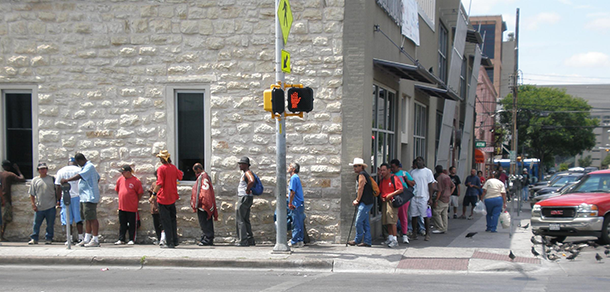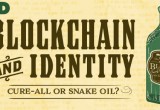Blockchain digital ID for homeless could make life easier, safer
24 May, 2018
category: Digital ID, Government
Digital ID for homeless powered by blockchain technology could make like easier and save the hassle of replacing lost IDs—that’s the idea behind a test under way in Austin, TX.
The pilot program in the capital city uses a blockchain-backed platform to “consolidate the identity and vital records of each homeless person in a safe and confidential way while providing a means for service providers to access that information,” according to a report in TechCrunch.
A digital identity system based on blockchain would enable social workers to add to a client’s records—for instance, health care services—to give medical professionals a clear idea of a homeless person’s medical history and prior treatments.
Program supporters want to make it possible for the more than 2,000 homeless people in Austin to access social services and perform other tasks that require identity authentication without having to rely on paper records. Homeless people have to carry those records with them, and they can easily be damaged by weather, stolen by thieves or taken during city cleanups of homeless camps.
Not having easily, reliable access to identification documents can, over the long run, make it harder for homeless people to get jobs and housing and otherwise move into the mainstream, according to supporters of the program.
The Austin project, called “MyPass Initiative,” is backed by a $100,000 grant from the Mayor’s Challenge Program, which is part of Bloomberg Philanthropies. Austin is one of 35 cities to receive the grant, according to reports. One of those cities will win a $5 million grand prize in October, with four other cities receiving $1 million each to be used toward similar projects.
Digital ID for homeless aids social workers
Blockchain-backed digital identity services in Austin would also help social service workers, via mobile devices, to better pull up information about their homeless clients. A digital identity system based on blockchain would also enable those workers to add to a client’s records—for instance, health care services could be stored and organized in a way that gives social service and medical professionals a clear idea of a homeless person’s medical history and prior treatments. That could lead to better overall care of homeless people, program supporters say.
Using blockchain to help homeless people might be a pretty new idea, but blockchain and blockchain-style technologies are increasingly making their way into the world of digital identity. For instance, a distributed ledger digital ID project in Taipei city, the capital of Taiwan, is intended to make citizens’ digital IDs harder to hack and deliver more robust use cases and benefits.




